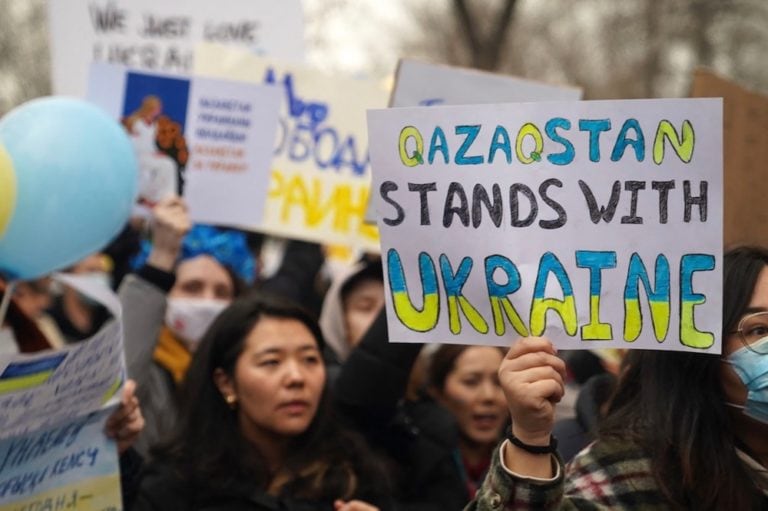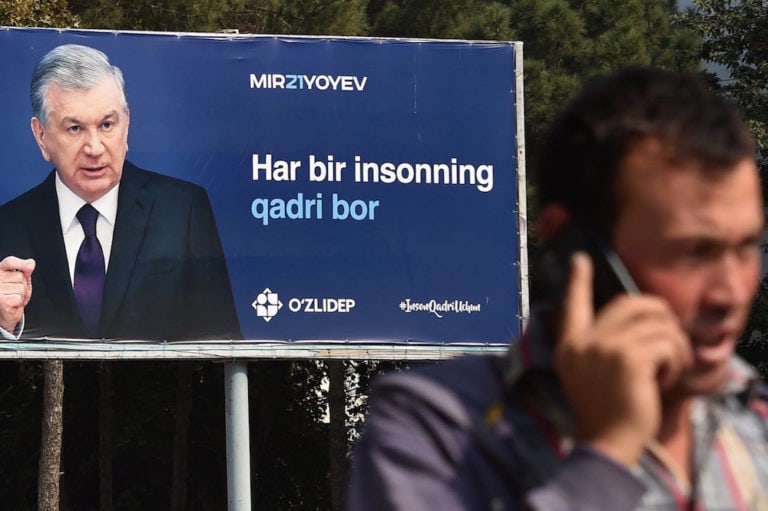(RSF/IFEX) – In a letter to United States (U.S.) Secretary of State Colin Powell, RSF urged him to use his influence to prevent the Uzbek government from “brutally repressing” the country’s independent journalists. The organisation cited the recent attacks on journalist Ruslav Sharipov, shortly before he was due to travel to the U.S. to testify […]
(RSF/IFEX) – In a letter to United States (U.S.) Secretary of State Colin Powell, RSF urged him to use his influence to prevent the Uzbek government from “brutally repressing” the country’s independent journalists. The organisation cited the recent attacks on journalist Ruslav Sharipov, shortly before he was due to travel to the U.S. to testify about the worsening human rights situation in Uzbekistan.
In his letter to Powell, RSF Secretary-General Robert Ménard stated, “President Islam Karimov’s regime is using the excuse of the fight against terrorism to brutally repress all independent journalism in the country. We ask that you use your influence with the Uzbek authorities to stop them from threatening the media, and also to inform them that the United States is concerned about Mr. Sharipov’s fate.”
RSF has learned that Sharipov, who is the correspondent in Uzbekistan for the Russian news agency Prima, president of the Uzbek Independent Journalists’ Union and an Internet site editor, was attacked on 5 February 2002 by three men, one of whom tried to strangle him. The next day, he was attacked again by two men who hit him on the head and in the stomach and seized his passport and journalist’s card.
Sharipov is due to travel soon to the U.S. at the invitation of the International Human Rights League to testify about the serious threats to journalists and defenders of individual freedom in Uzbekistan.
He was previously attacked on the night of 30 January, in Tashkent, by two police special services officers. Sharipov and the Prima news agency believe that these latest attacks are tied to an article that the journalist recently wrote about the 27 January referendum on the extension of President Islam Karimov’s presidential mandate. Sharipov and his family members were previously subjected to pressure from the authorities in 2001.
On 12 July, he was chased by security service (NSS) agents while on his way to the Tashkent court, where he was going to cover a trial. His assailants were about to start hitting him when passers-by intervened. The journalist managed to take refuge at the Organisation for Security and Cooperation in Europe’s (OSCE) local headquarters (see IFEX alert of 19 July 2001). In late August, he published a series of articles denouncing the repression of Muslims in the country and was also investigating the suspicious deaths of a number of political opponents. On 31 August, he was taken in for questioning by NSS agents who accused him of being involved with a terrorist group. Following these incidents, in an open letter to the Uzbek president, Sharipov asked that the security services stop tailing him, called for an end to pressure on his family, and asked that he be allowed to pursue his professional activities as an independent journalist.
In its letter to Powell, RSF recalled that “no independent information is tolerated in Uzbekistan. The state services regularly use tactics such as imprisonment, assaults and pressure on families against journalists who dare to challenge this ban. In a country where all information is inspired and authenticated by the state, the press is barred from commenting on the existence of an opposition, crime, corruption, and the various issues surrounding the respect of basic rights, individual and minority rights (notably the Uigor minority’s rights). One of the few local television stations that had a certain editorial independence, Urgensh-based ALC-TV, was definitively closed in July 2001. It had previously been the target of occasional forced closures since 1995” (see IFEX alert of 15 August 2001).


